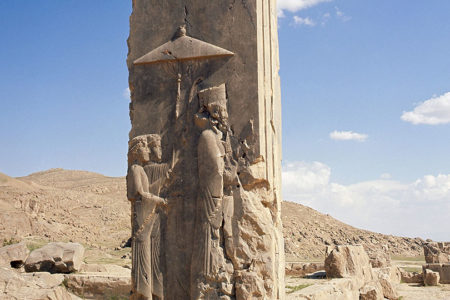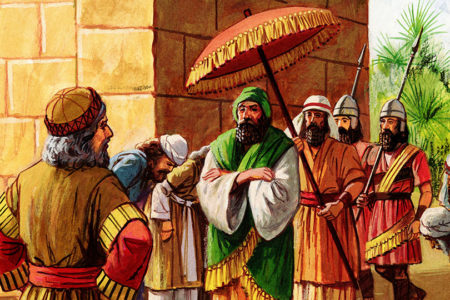Dilemma and Decisions Esther 4
Ever been between a rock and a hard place, as the saying goes? It’s that terrible situation in which both choices that lie before you are bad. Queen Esther faced such a dilemma. Where would she find the resolve to make the right decision? Esther 4 tells how a Jewish woman went about trying to save her people from extermination.
An ancient rabbi once said, “If I am not for myself, who will be for me? If I am not for others, what am I? And if not now, when?” Though Esther lived centuries earlier than the rabbi, he may have summed up her thinking.
The “final solution” plot was set. All the Jewish people in the world were slated to die because they all lived under the jurisdiction of the Persian Empire governed by King Ahasuerus, including those who had returned to the Promised Land (Est. 3:8).
Esther’s cousin Mordecai mourned, along with his people (4:1–3). When Queen Esther heard what Mordecai was doing, she sent her attendant to him to find out what was wrong (vv. 4–6). The servant returned with a copy of the death decree and a message from Mordecai telling her to go to the king and plead for pity for her people (vv. 7–9).
However, going before the king unannounced meant death unless the king extended his golden scepter (vv. 10–12). Mordecai accepted no excuse:
Do not think in your heart that you will escape in the king’s palace any more than all the other Jews. For if you remain completely silent at this time, relief and deliverance will arise for the Jews from another place, but you and your father’s house will perish (vv. 13–14).
So Esther requested that Mordecai and the Jewish people fast, and she and her maids would do the same. Then she would go before the king (vv. 15–17).
The Dilemma
Esther was right to be afraid, even though she was a queen. First, if she appealed to the king for her people, she would have to reveal that she was Jewish. The king could well think she had deceived him.
Second, even as queen she was bound by royal protocol. She had to be summoned to approach the king. She could not merely enter his presence whenever she wished.
Third, she also had to confront a powerful, high-ranking official in the kingdom: the evil Haman.
Although God is not mentioned in the book of Esther, His providential care for His people is evident throughout. Esther was placed in the palace for a purpose. Her destiny was to benefit others, and the welfare of her people was her responsibility. They needed her now. And she apparently recognized God was guiding her life. As Mordecai told her, “Who knows whether you have come to the kingdom for such a time as this?” (v. 14).
The Decision
Former Queen Vashti and Mordecai displayed courage in their life-threatening dilemmas (1:12; 3:2). Now it was Esther’s turn to be courageous. She did not disappoint; she risked her life for her people.
Her resolve came by seeking guidance through prayer and fasting. This combination was common among Jewish people in Old Testament times (cf. Ezra 8:21–23; Ps. 109:21–24; Dan. 9:3). With God’s help and the spiritual support of others who fasted and prayed, Esther received clarity in deciding what to do (Est. 4:16). After all, Scripture says,
For the LORD gives wisdom; from His mouth come knowledge and understanding; He stores up sound wisdom for the upright; He is a shield to those who walk uprightly; He guards the paths of justice, and preserves the way of His saints. Then you will understand righteousness and justice, equity and every good path (Prov. 2:6–9).
There will always be dilemmas in life. Seeking the Lord for wisdom through prayer is never a mistake: “If any of you lacks wisdom, let him ask of God, who gives to all liberally and without reproach, and it will be given to him” (Jas. 1:5). As the apostle Paul wrote,
Be anxious for nothing, but in everything by prayer and supplication, with thanksgiving, let your requests be made known to God; and the peace of God, which surpasses all understanding, will guard your hearts and minds through Christ Jesus (Phil. 4:6–7).
God loves to help those who call on His name.






